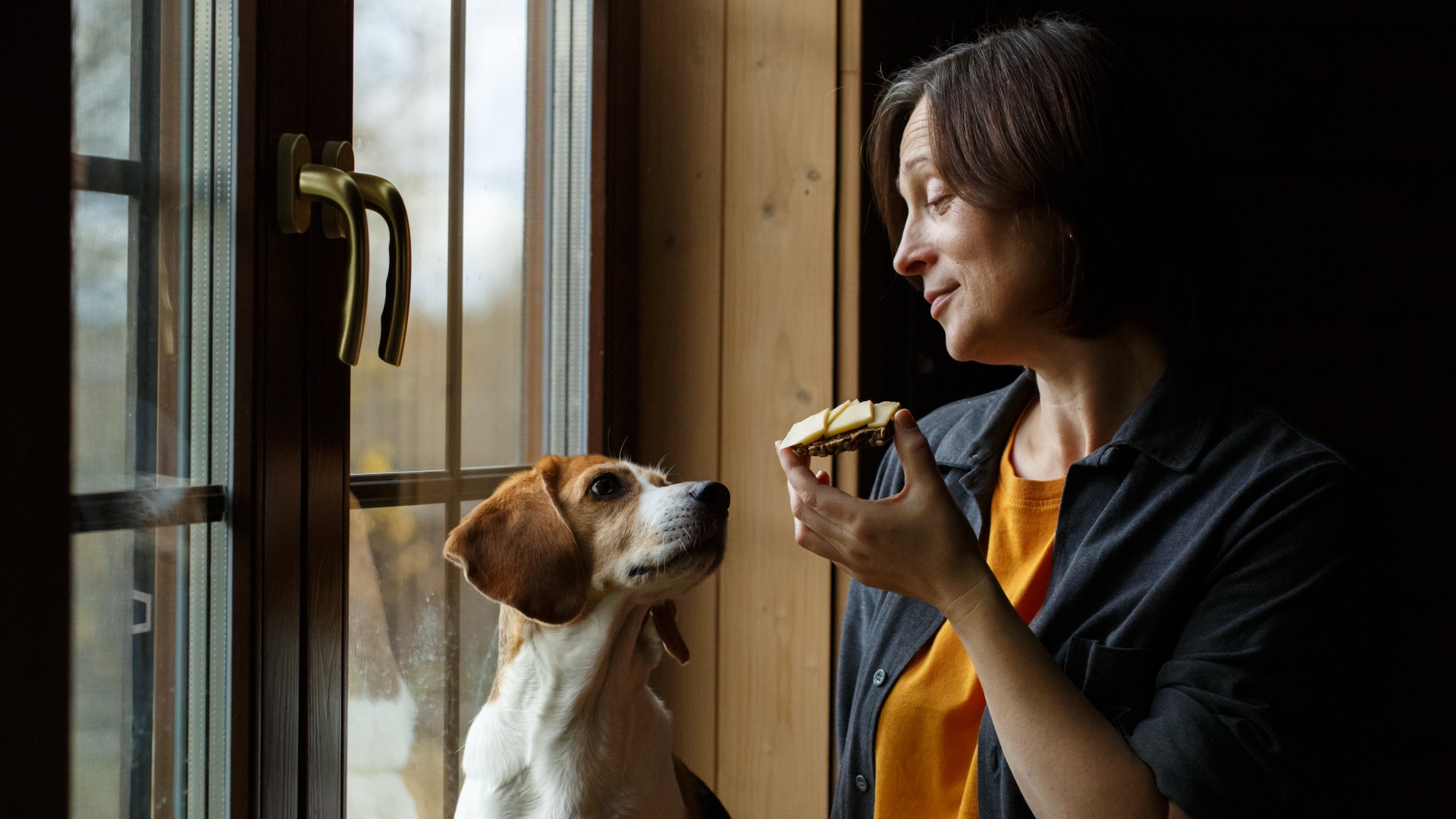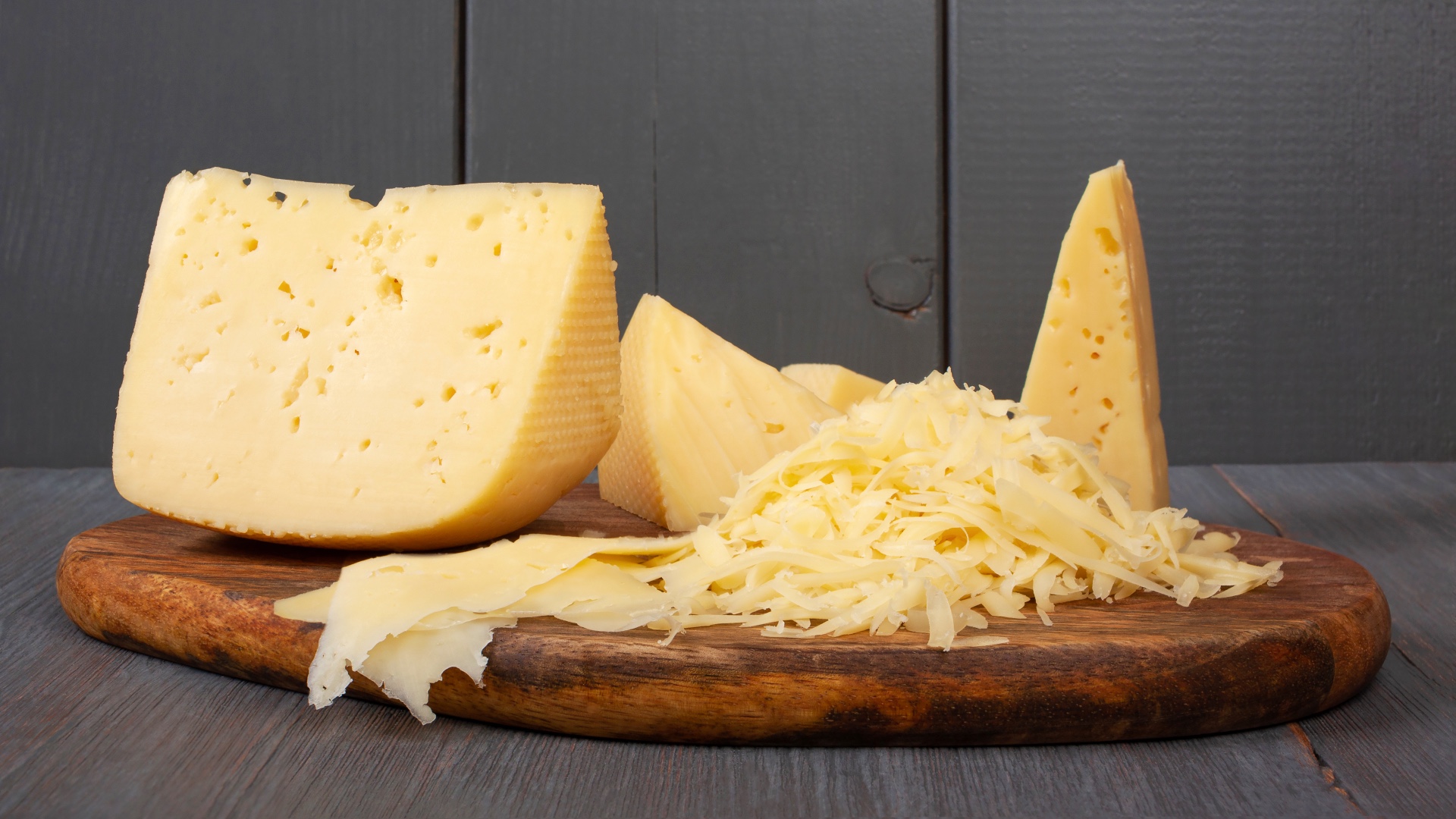Can dogs eat cheese? Dietary advice and feeding tips
Can dogs eat cheese and if they can, how much? All you need to know about your pup and the dairy treat

Can dogs eat cheese? You've probably wondered this when eating pizza or a charcuterie board and noticed your dog eying your meal.
If you have a habit of giving your dog "people" food you may notice your pooch eying your food quite a bit, but not everything we eat is safe for canine tummies. Dogs are omnivores, which means they can eat both meat and vegetables, but where does cheese fall on that spectrum?
Many dog owners wonder what human foods can dogs eat - and they should, as some food we enjoy can be very dangerous to your dog (like chocolate). Some dog owners believe in sticking with just the best dog food and some healthy dog treats when it comes to their pooch's diet, and that's definitely the way to go if you're concerned with your dog's gut health and overall health.
But if you're looking to let your dog occasionally indulge in some people food it's important to know what kinds they can and cannot eat.
Dogs can safely eat cheese, but there are things you need to consider when giving your dog a taste of some dairy deliciousness. We'll walk you through everything you need to know about dogs and cheese, so read on.
- Can dogs eat grapes? Are they a safe snack for canines?
- Can dogs eat pumpkin? Benefits and risks of this fall favorite
- Can dogs eat peanuts? Find out if this snack is for them
- Can dogs eat broccoli? Find out if the green vegetable is safe to eat
Is cheese good for dogs?
Cheese is safe to feed your dog, and there are some benefits from it. Cheese contains essential fatty acids, vitamin A, protein, B-complex vitamins, and calcium.
Trainers often use cheese in training sessions because dogs love it so much - it's a great way to motivate them and keep them keyed in on their training. Cheese is also a great way to hide pills from dogs who need medication.
When is cheese bad for dogs?
Cheese is a treat best given in moderation - and with the caveat that some dogs may be intolerant to it. If your dog can stomach cheese, that doesn't mean they should eat it often.
Cheese is very high in fat, so giving too much of the dairy delight can cause weight gain and obesity, which can lead to a whole host of issues. Too much cheese can also cause pancreatitis in dog breeds that are prone to it like Cocker Spaniels and Schnauzers.
Signs of pancreatitis can initially be mistaken as something less serious: vomiting, diarrhea, loss of appetite, weakness, fever. If your dog exhibits one of these signs, keep an eye on them, but if there's more than one after a cheese session, you should immediately call your vet.
Pancreatitis causes digestive enzymes to activate at the wrong time, damaging the pancreas and the organs and tissue around it. This can be very painful, and sometimes the enzymes can even begin to digest the pancreas itself.

Tips on feeding your dog cheese
If you want to start incorporating small amounts of cheese into your dog's diet, there are some tips to ensure they're getting the best possible cheese.
First, make sure you're avoiding cheese that has any sort of toxic additives like garlic, chives, and onion. Also, avoid spicy cheeses like pepper jack, which can upset your pooch's belly.
Then, focus on low-fat cheese like mozzarella, soft goat cheese, or cottage cheese, which is lower in fat, sodium, and lactose, the latter of which can cause an upset tummy. Introduce cheese in small quantities to see how your dog reacts, and consider mixing it in with their food.
Summary
Cheese is healthy for dogs in moderation, as long as you make sure they don't have a history of pancreatitis and that the cheese you're giving them is low fat and without any spicy or toxic additives. As with all dog treats, moderation is key here, as is slowly introducing new food to your dog's diet.
Don't be surprised if your dog loves cheese - they all do - but make sure you're giving it to them safely and responsibly! One piece of mozzarella from the charcuterie board should be fine.
PetsRadar Newsletter
Get the best advice, tips and top tech for your beloved Pets
